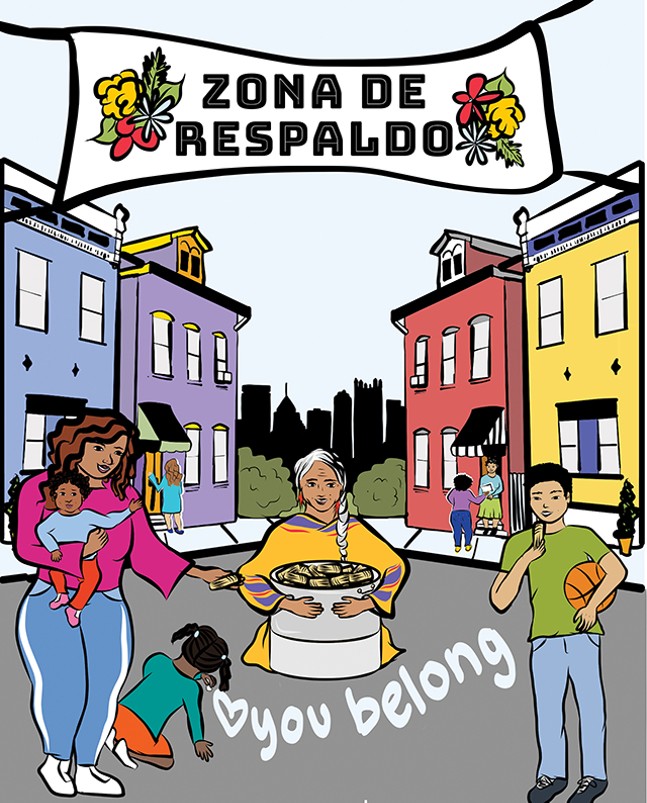But this isn’t stopping U.S. Immigration and Customs Enforcement (ICE) from detaining proportionally large numbers of immigrants in the region. According to immigrant service group Casa San Jose, the Pittsburgh ICE office is detaining about eight immigrants a day.
Laura Perkins of Casa San Jose says ICE tends to watch and follow immigrants, and usually detains them as they are leaving home. ICE typically targets a single immigrant that it has received a tip on, but Perkins says ICE in Pittsburgh has been known to take other immigrants who are with the target.
“They will just take everyone in that group,” says Laura.
Casa San Jose sees this as a crisis and has responded accordingly. Starting last month, the organization created a “Zona De Respaldo” campaign. It translates to “zone of support” or “backing” and it is meant to teach undocumented immigrants and their allies about the rights that immigrants have when they are confronted with immigration officials.
The campaign includes posters that residents and businesses can put up in their windows, signaling to immigrants that they are allies and will help them if they are being followed or confronted by immigration officials.
“It’s about educating the Latino and Latina community,” says Perkins. “And it’s about mapping out where our allies are.”
Casa San Jose has already canvassed in Beechview and East Liberty and the neighborhoods’ surrounding areas. So far, more than 200 participants have signed up. Perkins says Beechview and its surroundings have been the main targets for ICE, but with the immigrant population of East Liberty growing, Casa wanted to be proactive in educating residents.
The campaign teaches immigrants not to open their doors when confronted by ICE agents, and to ask to see a signed judicial warrant with a correct address and name with correct spelling. Perkins reminds immigrants that they have the right to remain silent and suggests not answering questions or signing documents without a lawyer present.
Allies are encouraged to document detainments, police stops, or harassment, and Perkins asks that they note the location, time, and identity or characteristics of the person involved. Perkins says sharing that information with Casa San Jose is more prudent than posting on social media, since the information can create some hysteria.
Studies show that undocumented immigrants commit fewer crimes than native-born populations. Because of that, cities like Pittsburgh have limited communication with ICE, as a way to encourage immigrants to communicate with police when they need to.
However, it is unclear if any other police departments in the region follow this same policy, and some have been known to actively tip-off ICE. Perkins says this is why it’s important to remind immigrants where it is safe for them and where they can find support.
“If you feel unsafe, and you need to know where the allies are, our goal is to help,” says Perkins.
To learn more about participating in the program, visit casasanjose.org or call 412-736-7167.


